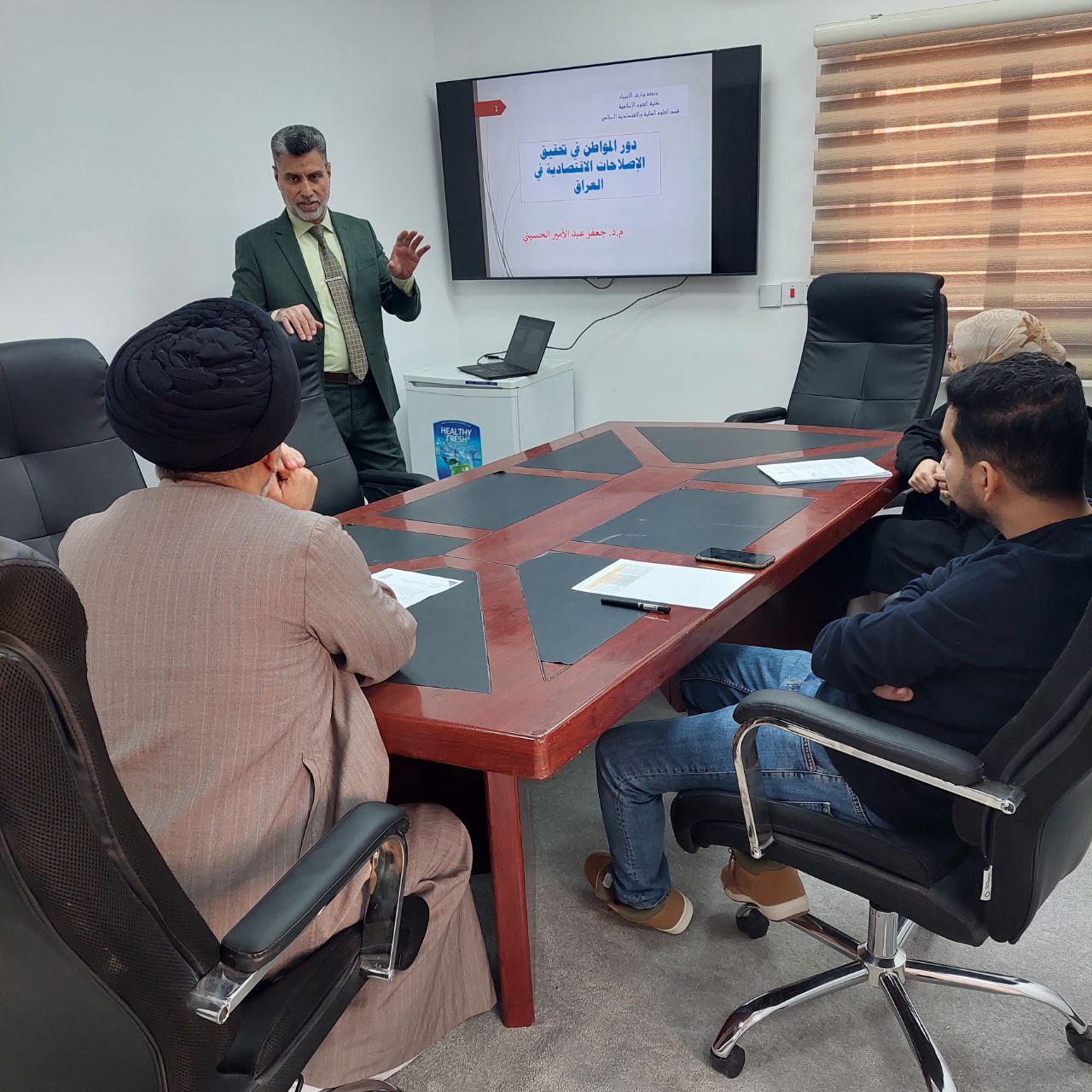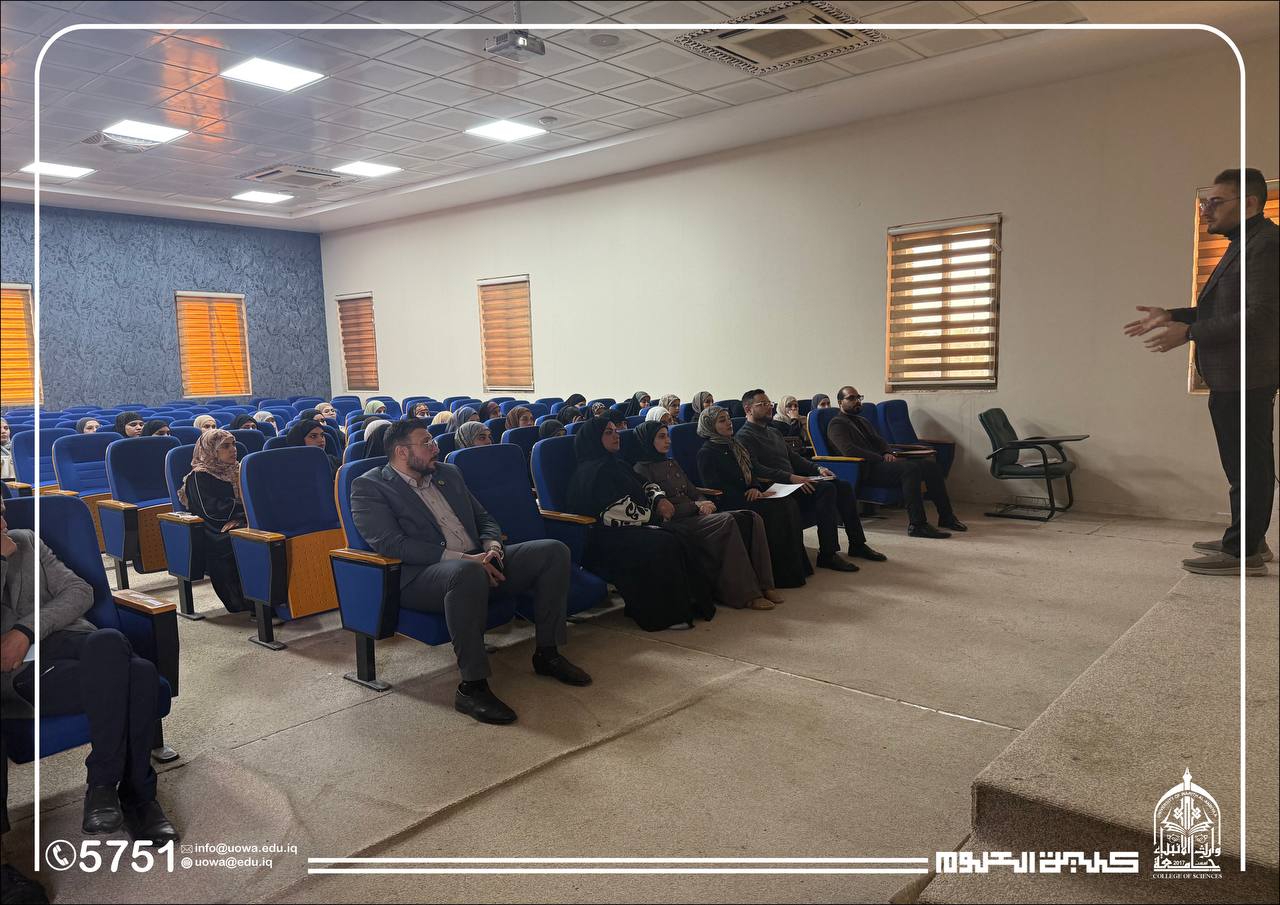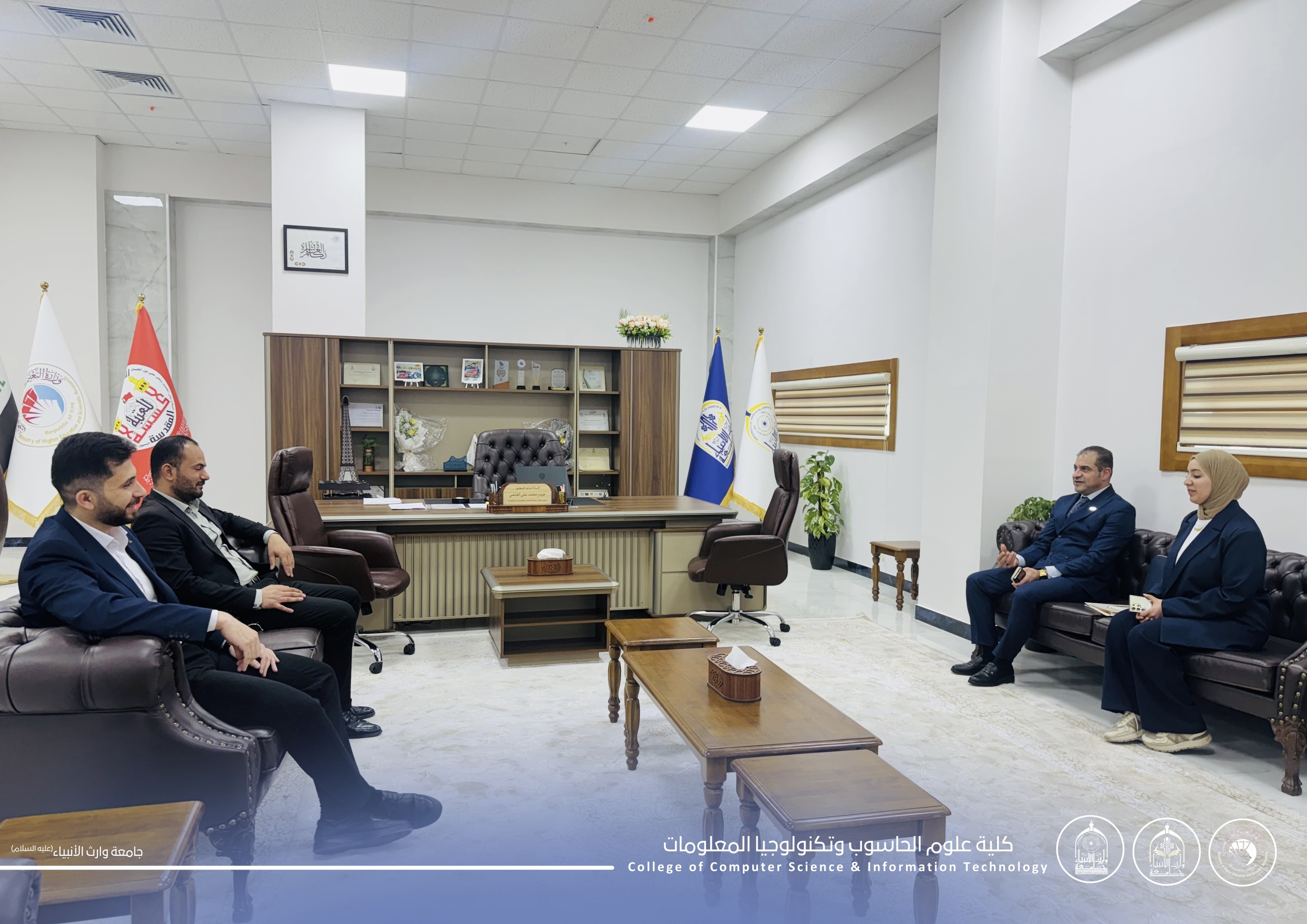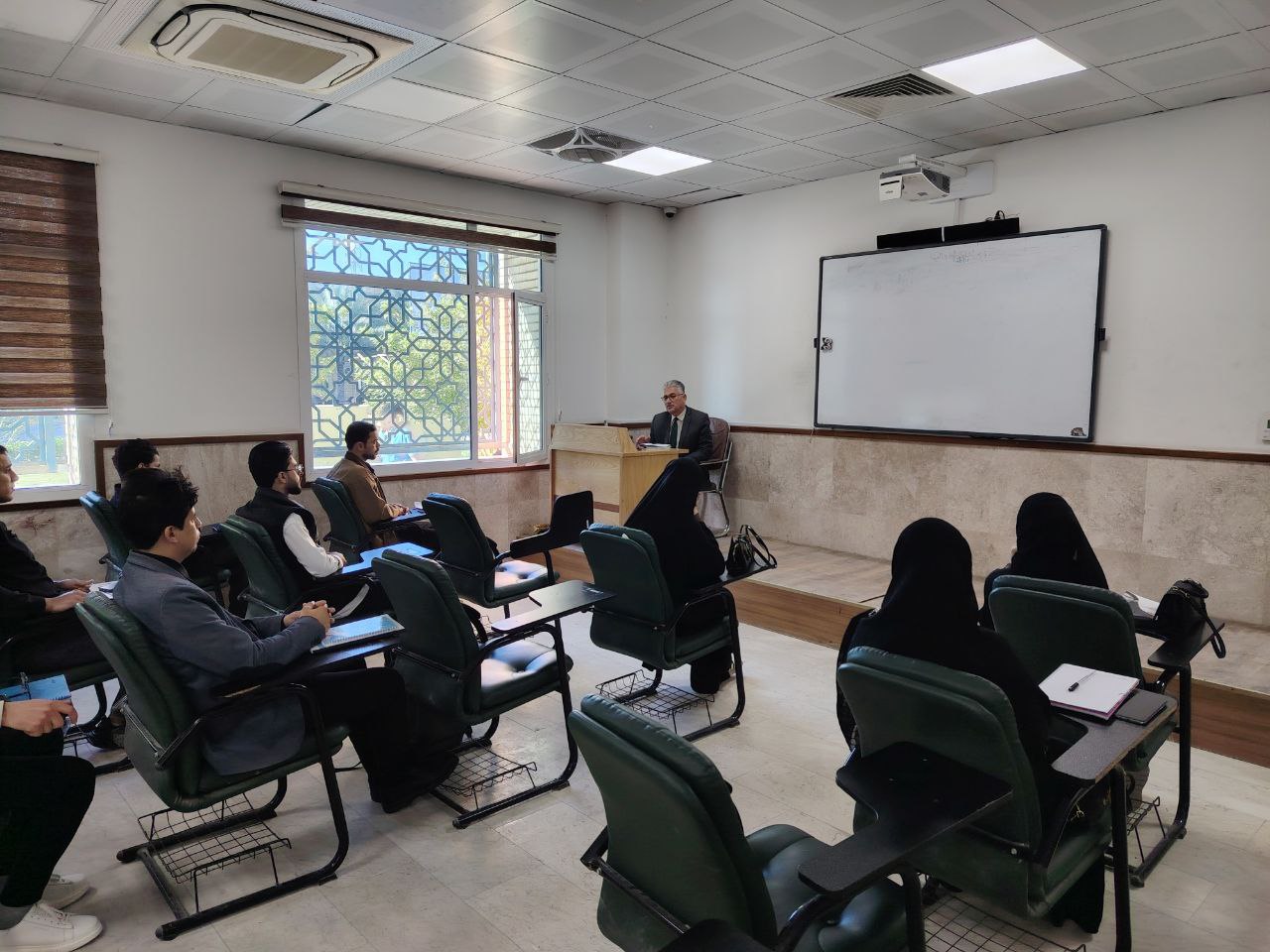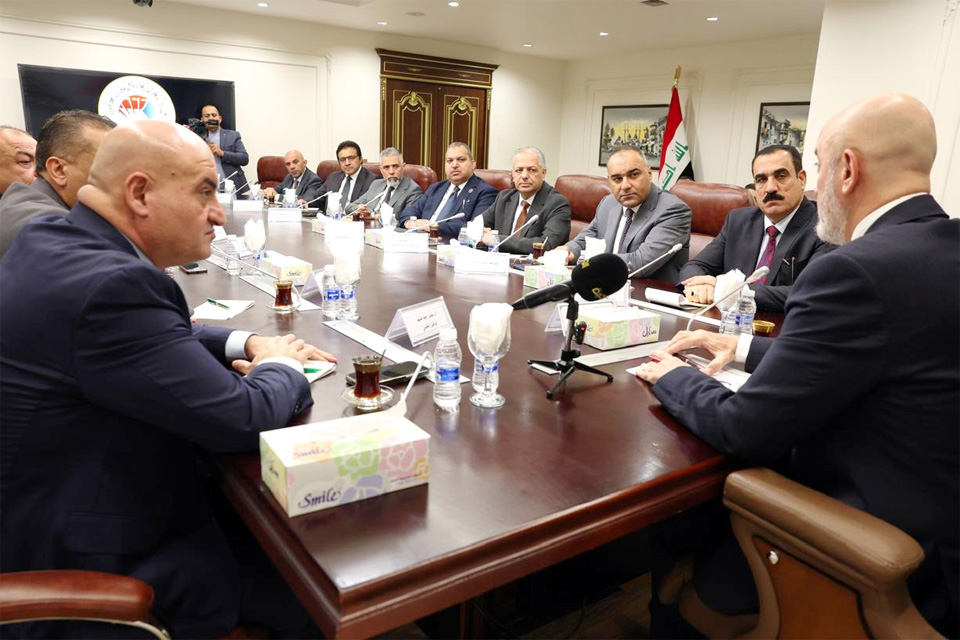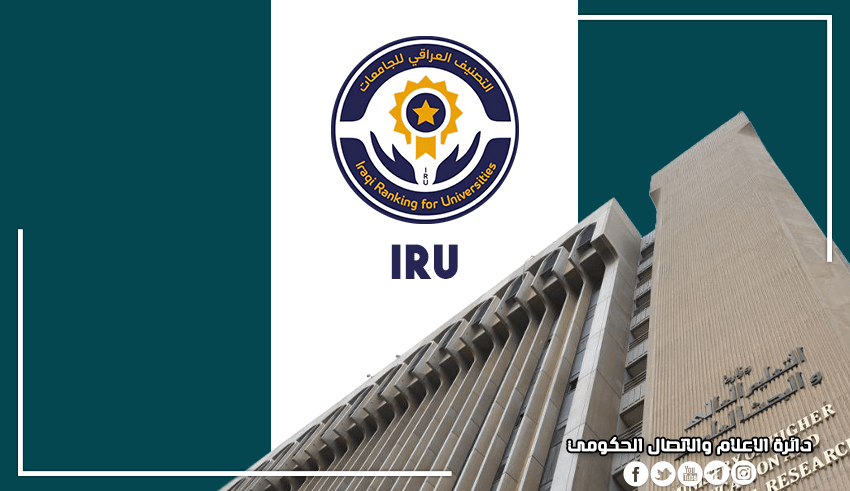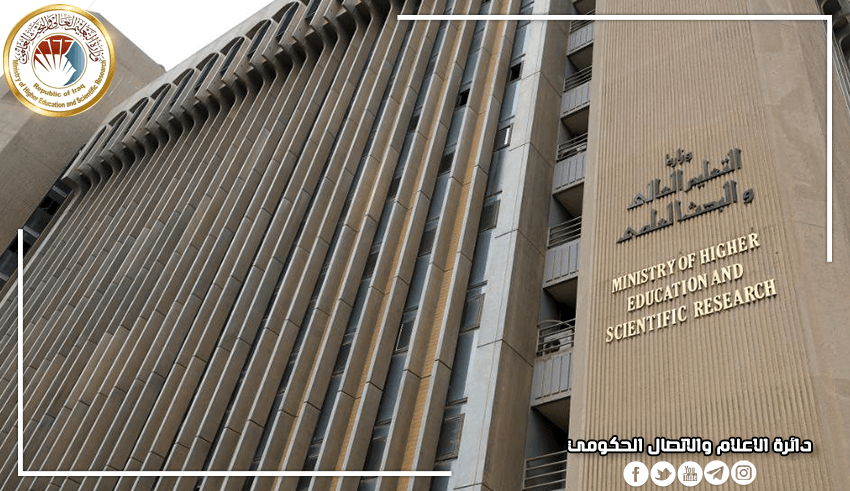A discussion workshop at the College of Islamic Sciences examines the role of citizens in achieving economic reforms in Iraq
In an important step towards finding a solution to the economic challenges facing Iraq, the College of Islamic Sciences at the University of Warith al-Anbiya held a discussion workshop entitled "The Role of Citizens in Achieving Economic Reforms" on Wednesday, December 6, 2023.
Assistant Professor Jaafar Abdul Amir al-Husseini gave an inspiring lecture on the economic challenges facing Iraq after 2003. Al-Husseini reviewed the negative effects of trade openness decisions and the financial and monetary challenges that led to paralysis in some economic sectors.
In an attempt to use the power of the consumer to achieve change, Al-Husseini presented a proposal based on behavioral economics theory, indicating the need to employ economic policy tools better. He called for mobilizing influential forces in society to encourage consumers not to buy imported goods, except for essential goods.
The workshop stated:
"After the consequences of wars and economic embargo in recent decades weakened the international competitiveness of the productive sectors in Iraq, these sectors emerged, after 2003, to face the decision of uncontrolled trade openness to various global markets, in addition to a number of monetary and financial decisions that worked to strengthen and deepen this weakness, so the inevitable result of this decision was the near-total paralysis of these sectors.
According to the rules of economics, the solution to this problem is through employing appropriate economic policy tools, by adopting a package of trade, financial and monetary policies, and what they require in terms of legal legislation, and reformative executive procedures, within a scientific economic strategy with clear features, starting from the education system (enhancing productivity), and ending with creating an environment conducive to investment (reducing the burdens on investors), according to the international standards set for this purpose. However, the reluctance of the concerned parties to adopt such solutions, and what it caused in terms of aggravating the size of the problem and deepening it, it became necessary to search for unconventional solutions.
Hence, the proposed solution comes as an attempt to use the power of the consumer to confront the various factors that led to the weakening of this competitive ability, through Mobilizing influential forces in society to urge consumers to collectively refrain from purchasing all imported goods, except for essential ones that cannot be produced locally.
Scientifically, the proposal is based on Behavioral Economics, which aims to address the deviation of reality from the abstract assumptions adopted by traditional economic theory in explaining the economic behavior of individuals, by integrating realistic psychological assumptions into the analysis of the economic decision-making process. Therefore, it differs from traditional economic theory in that the individual is not necessarily always rational in his choice, and the economic decisions made by individuals are not always correct. Rather, individuals can make somewhat bad decisions, decisions that they would not have made if they had paid full attention, and had complete information, unlimited cognitive abilities, and complete self-control. In order to correct individuals' decisions, the theory goes to the necessity of implementing a pattern of choice architecture, without radically limiting their freedom of choice, as it falls within the framework of what is known as "libertarian paternalists", and this is done by a qualified party (public or private organizations) facilitating the task of people in reaching the best option, to improve their situation, whether public or private, while maintaining their complete freedom of choice.
"
For his part, the Dean of the College of Islamic Sciences, Dr. Talal Al-Kamali, stressed the importance of constructive discussion on these vital issues, and encouraged the attendees to participate effectively in future workshops.
This workshop comes within the context of the university's efforts to enhance interaction between experts and the local community to work together towards achieving economic reforms that contribute to enhancing sustainable development in Iraq.
